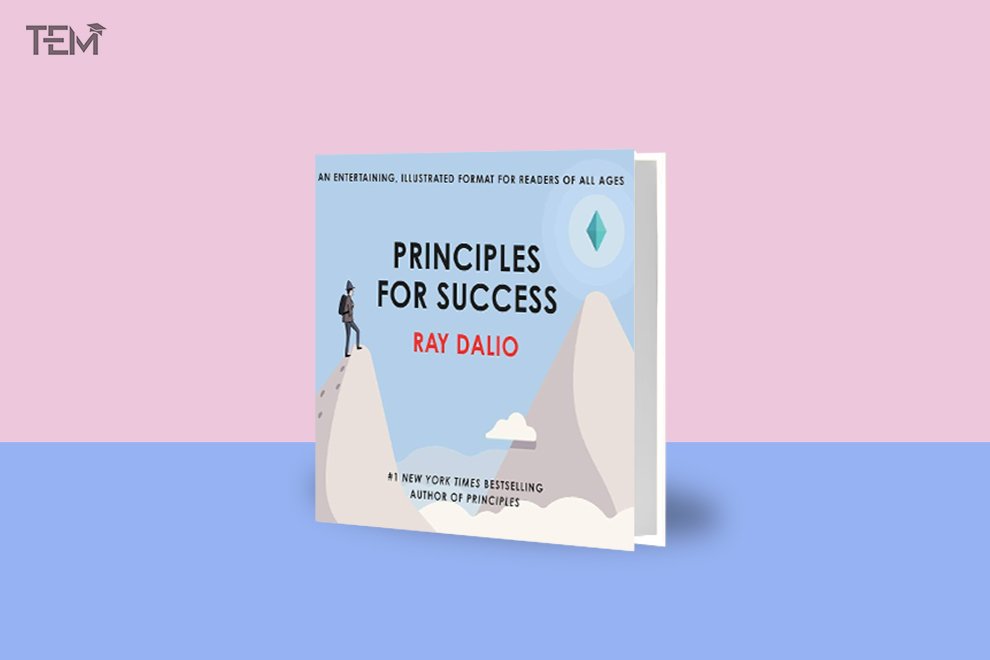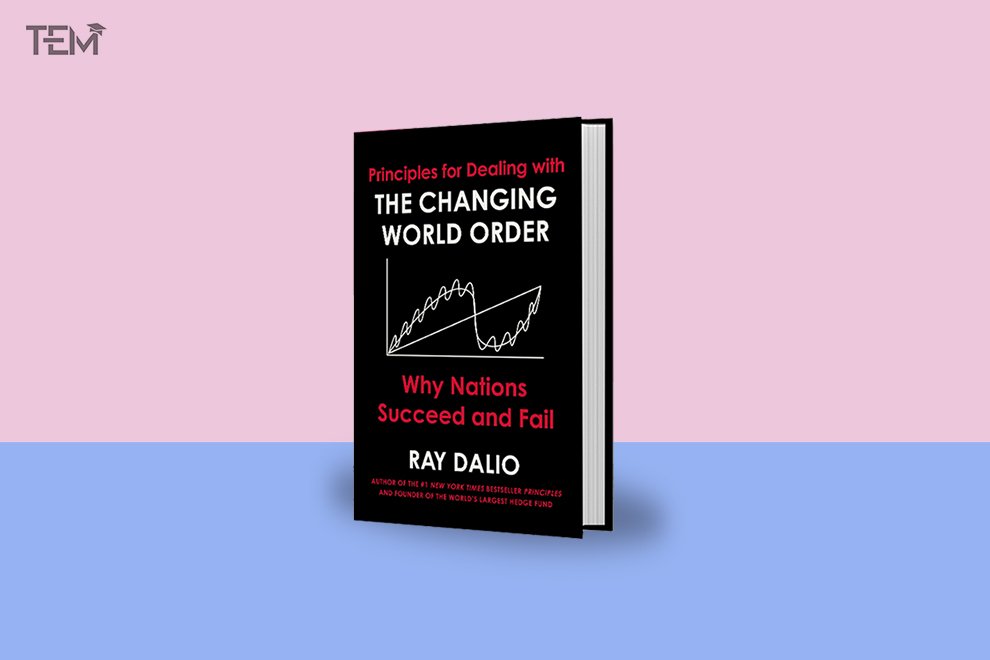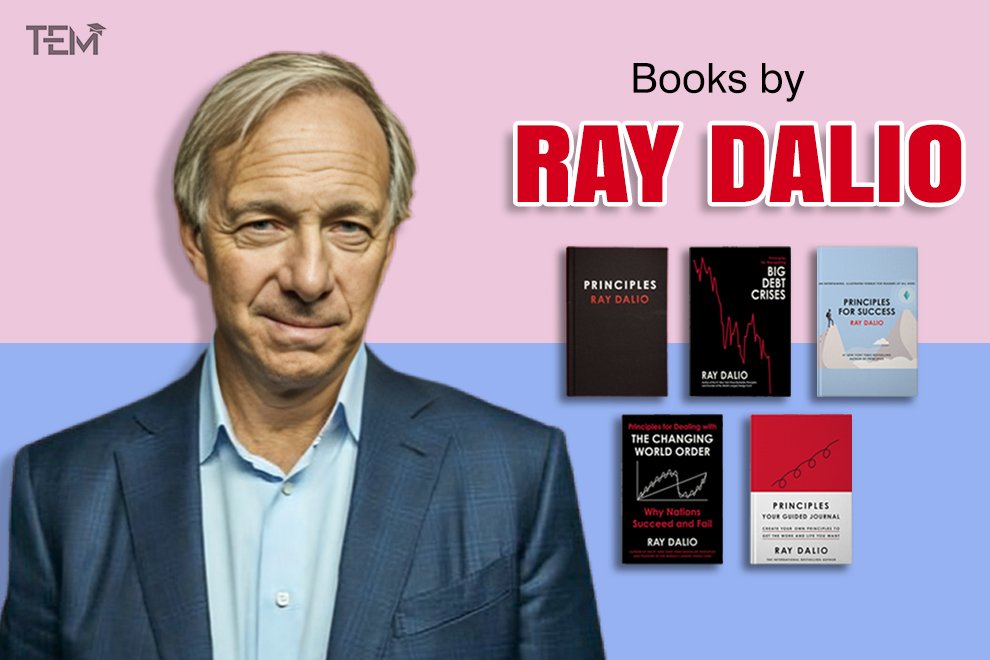Books by Ray Dalio are more than just financial guides. They shape how leaders think, how investors plan, and how people grow. His principles go beyond theory—they offer real-world strategies for success.
Many focus on what Dalio teaches, but the real value lies in how his ideas work in practice. His methods help in making better decisions, solving problems, and improving teamwork.
However, no system is perfect. While his approach is powerful, it has its challenges. Understanding both its strengths and limitations can help you apply his lessons more effectively.
Let’s take a closer at these 5 books by Ray Dalio and understand what makes them influential
| Books | Year Of Publication |
| Principles | 2017 |
| Principles for Navigating Big Debt Crises | 2018 |
| Principles for Success | 2019 |
| Principles for Dealing with the Changing World Order: Why Nations Succeed and Fail | 2021 |
| Principles: Your Guided Journal | 2022 |
1. Principles

Books by Ray Dalio are not just about finance—they offer life-changing lessons. Principles teaches that life, like markets, follows cause-and-effect patterns. Dalio’s idea of radical transparency builds trust, though it can be tough to implement.
His structured problem-solving method helps break down complex issues. However, the book leans heavily on logic, sometimes overlooking intuition and emotions. The key is to find a balance between structure and flexibility.
Example:
I once faced issues with missed deadlines and finger-pointing in my team. Inspired by Dalio’s radical transparency, I made some changes:
- Open communication: Weekly meetings allowed everyone to share challenges without fear.
- Structured problem-solving: We analyzed failures step by step to find solutions.
- Trust and accountability: Over time, our team morale improved.
- Balanced approach: Transparency worked best when combined with empathy.
Key Insights from Principles
- Life follows predictable patterns, just like markets.
- Radical transparency builds trust and improves teamwork.
- A structured approach helps in solving complex problems.
- Logic is powerful but should not replace intuition.
- Success comes from balancing structure with flexibility.
2. Principles for Navigating Big Debt Crises

Ray Dalio, in Principles for Navigating Big Debt Crises, explains how debt crises follow common patterns. He uses history and data to show how economic cycles repeat. His book helps readers understand how debt builds up, leading to financial booms and collapses.
Dalio highlights the importance of credit, risk management, and economic signals. While his approach is valuable, every crisis is unique, and history does not repeat in the exact same way.
Example:
Dalio’s insights changed how I view financial crises.
- In 2008, I didn’t understand why the economy crashed.
- After reading Big Debt Crises, I saw how credit bubbles lead to collapses.
- Now, I pay more attention to economic signals.
- I have adjusted my investments to focus on stability.
- While history offers lessons, every crisis unfolds differently.
Key Insights from the Book:
- Debt crises follow patterns, making them predictable.
- Credit expansion fuels booms, but excessive debt leads to crashes.
- Risk management helps investors avoid big losses.
- Studying past crises helps in making better financial decisions.
- Every crisis has unique factors, so predictions must be cautious.
3. Principles for Success

Principles for Success simplifies the big ideas from Dalio’s earlier work into practical steps for personal and professional growth. It focuses on self-reflection, goal setting, and continuous learning. The book guides readers in recognizing strengths and weaknesses and developing strategies for improvement. Books by Ray Dalio emphasize structured thinking, and this one is no different.
However, some readers feel that it repeats ideas from his past books. While it provides a solid framework for individual success, it sometimes overlooks the power of teamwork and collaboration.
Example:
I was stuck in my career and unsure of my next move. This book helped me reflect on my strengths and weaknesses. I discovered that:
- I was good at problem-solving but struggled with communication.
- I joined a public speaking club to improve.
- I started presenting my work more often.
- I followed Dalio’s decision-making framework.
- I found my passion and focused my efforts accordingly.
Key Insights from the Book :
- Self-reflection is the first step to improvement.
- Set clear goals and work towards them.
- Learn from failures and adapt.
- Make decisions using a structured process.
- Success is a journey, not a destination.
4. Principles for Dealing with the Changing World Order: Why Nations Succeed and Fail

Books by Ray Dalio take a deep dive into how empires rise and fall. He explains that history follows patterns, and understanding these cycles can help us make sense of today’s world. He connects economic growth, political power, and social shifts to show how global leadership changes over time.
While the book offers valuable insights, some critics say it oversimplifies complex global events. Still, it provides a useful framework for thinking about the future.
Example:
- The book helped me understand why world powers compete economically.
- His insights on technology’s role in global power made me see why innovation matters.
- Dalio’s take on debt and financial instability made me pay more attention to economic policies.
- I now recognize patterns in history that influence today’s politics.
- While history is a guide, unexpected events can still change everything.
Key Insights from the Book:
- History follows cycles of growth and decline.
- Economic and technological innovation shape world power.
- Debt and financial crises impact global stability.
- Political and social factors drive major changes.
- Learning from history helps us predict future shifts.
5. Principles: Your Guided Journal

Principles: Your Guided Journal is not just a book; it’s a hands-on tool for self-reflection. It helps readers apply Ray Dalio’s principles to their own lives in a structured way. The journal includes exercises that encourage deep thinking about values, goals, and challenges.
However, its effectiveness depends on consistent effort. Some may find the structure a bit rigid, but the key is to adapt it to personal needs. Instead of following every step exactly, users can modify the prompts to suit their journey.
Example:
One exercise asked me to identify my core values. At first, it was tough, but I discovered that I deeply value:
- Creativity
- Learning
- Helping others
After this, I started choosing projects that let me express creativity and learn new skills. The journal also helped me reflect on past successes and failures, which improved my decision-making.
Key Insights from the Book:
- Encourages self-reflection and personal growth
- Helps in identifying core values and goals
- Structured approach but adaptable to individual needs
- Requires consistency and honesty for best results
- A practical guide for applying principles from books by Ray Dalio
Key Takeaways
Ray Dalio’s books have shaped how leaders, investors, and individuals approach decision-making. His works go beyond finance, offering structured frameworks for problem-solving, personal growth, and understanding economic cycles. The power of his books lies in their ability to simplify complex ideas into actionable insights.
- Principles emphasizes that life follows predictable patterns, radical transparency builds trust, and structured problem-solving leads to better decisions.
- Principles for Navigating Big Debt Crises explains how credit cycles drive financial booms and crashes, highlighting the importance of risk management.
- Principles for Success simplifies Dalio’s core ideas into steps for self-improvement, goal setting, and structured decision-making.
- Principles for Dealing with the Changing World Order explores historical cycles of economic and political power shifts, helping readers understand global trends.
- Principles: Your Guided Journal provides a hands-on approach to applying Dalio’s principles, encouraging self-reflection and personal growth.
Dalio’s books remain influential because they bridge theory and practice. While his structured frameworks are powerful, flexibility is key to adapting them effectively.
FAQs
- How many book copies has Ray Dalio sold?
Ray Dalio’s books have sold over a million copies worldwide, making him one of the most influential authors in the fields of finance and personal growth.
- What does Ray Dalio recommend?
Ray Dalio strongly recommends diversification. He suggests diversifying investments across 15 or more uncorrelated assets to minimize risk and maximize returns. Uncorrelated assets move independently of each other, reducing overall financial risk.
- How did Ray Dalio get so rich?
Ray Dalio accumulated his wealth by founding Bridgewater Associates, the world’s largest hedge fund. With assets under management exceeding $124 billion, his success is driven by innovative investment strategies and deep market insights.
- What is the philosophy of Ray Dalio?
Ray Dalio’s philosophy is rooted in principles based on cause-and-effect relationships. He emphasizes analyzing past events to make better decisions and improve outcomes, focusing on transparency, radical truth, and systematic problem-solving.










